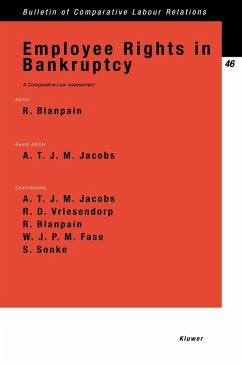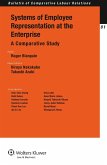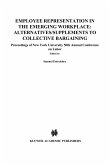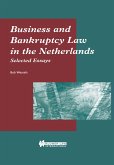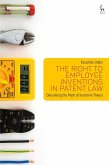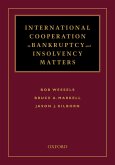In recent years, a number of company bankruptcies in Europe - particularly in the Netherlands - have exposed serious gaps in the securing by law of reparations due to employees. As matters stand, employees - who were dependent upon the bankruptcy not only for their income but also for their employment and social security - have little to expect in terms of payment of arrears of pay, protection against dismissal, continued employment in the event of a business transfer, or participation rights.This work opens this far-reaching and hugely important issue by comparing employee rights in bankruptcy among four major European trading partners - the Netherlands, the United Kingdom, Belgium and Germany. It is to be hoped that, armed with the substantive and procedural details that are fully laid out in these pages, company lawyers and bankruptcy lawyers throughout Europe will be enabled to bring the rights of employees in bankruptcy into a light at least as clear as that focused on other creditors.The contributors examine not only the individual fairness issue - the unequal position of the employee as weaker party in the labour market - but also the central policy issue: does an improvement of the position of employees in a bankruptcy give rise to less willingness on the part of lenders to keep the flow of money open, or greater control by lenders over the way in which borrowers run their businesses with, as a result, slower economic growth and hence a lower level of employment?The study was commissioned by the Stichting Ondersteuningsfonds Oud-Werknemers DAF (Benevolent Fund Foundation for Former DAF Employees) in Eindhoven and carried out by researchers of the Faculty of Law of the Katholieke Universiteit Brabant in Tilburg. Its provisional findings, presented at the conference on "e;Employee Rights in Bankruptcy"e; held in Tilburg on 8 December 1999, were considered and discussed from a variety of viewpoints by representatives of such relevant parties as trade unions and employers' organizations, receivers in bankruptcy, banks, public authorities, politicians and legal experts. The end result is this report, which is sure to contribute to a better understanding of the difficult issue of employee rights in bankruptcy and to stimulate discussion of remedies that are indispensable to the maintenance of a responsible society.
Dieser Download kann aus rechtlichen Gründen nur mit Rechnungsadresse in A, B, BG, CY, CZ, D, DK, EW, E, FIN, F, GR, HR, H, IRL, I, LT, L, LR, M, NL, PL, P, R, S, SLO, SK ausgeliefert werden.

